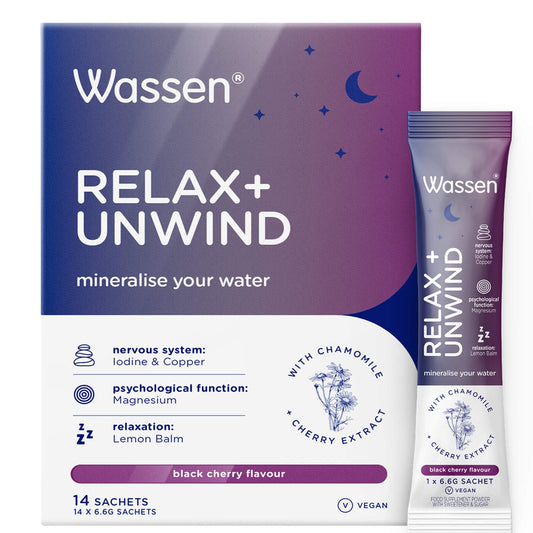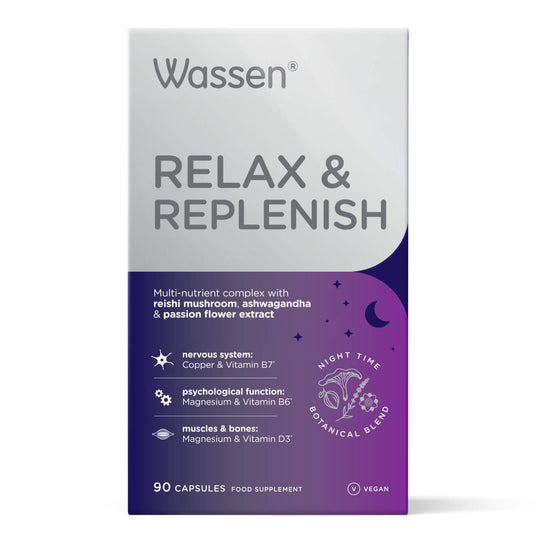As the days shorten and the temperature drops, do you find your mood dipping too? You’re not alone - the winter blues and even winter depression (a form of seasonal affective disorder) affect millions every year.
These shifts in mood aren’t a personal failing but a biological response to reduced daylight, disrupted circadian rhythm, and changes in key brain chemicals like serotonin and melatonin.
The good news? There are simple, science-backed ways to beat the winter blues, boost your energy, and feel more balanced all season long.
Here’s exactly what’s happening in your body - and the most effective tips to help you beat winter depression and feel brighter, lighter, and more resilient.

What Are the Winter Blues and Why Do They Happen?
The Role of Reduced Daylight in Winter Depression
Winter brings significantly less natural daylight, which disrupts the body’s internal clock. This shift is thought to be one of the leading causes of the winter blues and seasonal affective disorder.
How Seasonal Affective Disorder Can Disrupt Your Mood and Energy
Less daylight reduces serotonin (your mood-regulating hormone) and increases melatonin (your sleep hormone). This combination can leave you feeling tired, low, and unmotivated.
Biological Reasons You Slow Down in Winter
Humans, like many mammals, naturally conserve energy in colder months. Craving quiet evenings, slower mornings, or more rest is not weakness - it’s part of your biology.

Top Science-Backed Tips to Beat the Winter Blues
1. Get Natural Morning Light
If you do just one thing, do this.
Morning daylight - even on cloudy days - is far more effective than indoor lighting or even many SAD lamps.
Try:
- 15–30 minutes outside within one hour of waking
- A brisk walk, coffee outside, or opening blinds fully
- Sitting near the brightest natural window possible if you can’t get outdoors
How Light Exposure Regulates Serotonin and Melatonin
Light suppresses excess melatonin and increases serotonin. This shift lifts your energy, mood, and alertness - making daily light exposure one of the strongest tools for beating winter depression.
If outdoor light isn’t possible, a SAD lamp (10,000 lux) can help - but natural light wins every time.

2. Embrace the Art of Wintering
Borrowing wisdom from Scandinavian “hygge,” winter can be a season of warmth, slowness, and intentional comfort.
Try creating your own version at home:
- Soft blankets and candlelight
- Slow meals with loved ones
- An early bedtime or lunchtime walk
- Replacing scrolling with a chat or a good book
“Winter invites us to reconnect with ourselves - to slow down, simplify, and honour what our bodies truly need. When we stop fighting the season and instead flow with it, we often find greater balance and energy.”
- Victoria Malcolm, Nutritional Therapist at Wassen
Rest isn’t indulgent - it’s deeply restorative.

3. Nourish Your Body With Seasonal Foods That Support Energy & Mood
Your immune system and energy levels need extra support in winter. Focus on foods that energise, stabilise mood and nourish your body:
- Root vegetables (sweet potato, beetroot, carrots) - great sources of complex carbohydrates, fibre & beta-carotene
- Leafy greens (kale, cavolo nero, spinach) for magnesium
- Whole grains (brown rice, quinoa, barley) for B vitamins and fibre
- Citrus fruits & berries for vitamin C
- Warming spices (ginger, cinnamon, turmeric, garlic)

4. Prioritise Hydration with Warming Drinks
It’s easy to drink less in winter, but hydration is key for focus and mood.
Swap some water for herbal teas or a nourishing healthy hot chocolate to give warmth and extra support to your body, such as:
- Ginger & lemon for warmth and digestion
- Echinacea for immune support
- Chamomile for calming the nervous system
- Peppermint for mental clarity
- Magnesium-rich dark hot chocolate
Think of each mug as a micro–self-care ritual.

5. Move Your Body Gently
You don’t need intense workouts to feel better. What matters is consistency and daylight exposure.
Try:
- A brisk 10–20 minute walk outdoors
- Stretching by the fire
- Gentle yoga or Pilates
- Dancing in your kitchen
- A lunchtime stroll to maximise daylight
Movement boosts endorphins and helps regulate serotonin - both crucial for winter mood.

6. Protect Your Mental Space with Simple Daily Rituals
Winter is naturally inward-focused. Make space to reflect, rest, and reset.
Ideas include:
- A warm bath before bed
- Journaling for 5 minutes
- A weekly digital detox evening
- A quiet morning ritual with tea and a candle
“It’s often the small, consistent choices… that make the biggest difference to how you feel.”
- Victoria Malcolm, Nutritionist at Wassen

7. Keep Social Connection Alive
One major driver of the winter blues is reduced social activity.
Counter this with simple habits:
- Schedule regular catch-ups (walks, coffees, cosy nights in)
- Join a class or group
- Make a weekly plan for connection, even if small
Connection is one of the strongest antidotes to low mood.

8. Prioritise Restorative Sleep
Sleep plays a crucial role in regulating hormones affected by the winter blues. Darker days can disrupt your natural sleep–wake cycle, making consistent sleep habits especially important.
Try:
- Going to bed and waking at consistent times
- Limiting screens for at least 60 minutes before bed
- Getting morning daylight exposure to anchor your circadian rhythm
- Creating a calming pre-sleep routine (warm bath, herbal tea, reading)
- For extra support winding down, a quality sleep supplement such as Wassen Relax & Replenish can help. Relax & Replenish is a powerful night-time blend of 14 vitamins, minerals & botanicals including Magnesium for mood, and Ashwagandha for relaxation.
Good-quality sleep stabilises mood, improves resilience, and reduces winter sluggishness.

Beat the Winter Blues With These Simple Daily Habits
Winter isn’t something to endure - it’s a season to embrace and navigate with intention and care. When you support your body with light, nourishment, movement, and rest, you don’t just survive winter - you beat the winter blues and step into spring feeling more balanced, energised, and resilient.
Disclaimer: This blog is for informational purposes only and is not medical advice. If you are experiencing severe symptoms or need support, please seek the care of a qualified medical professional.





